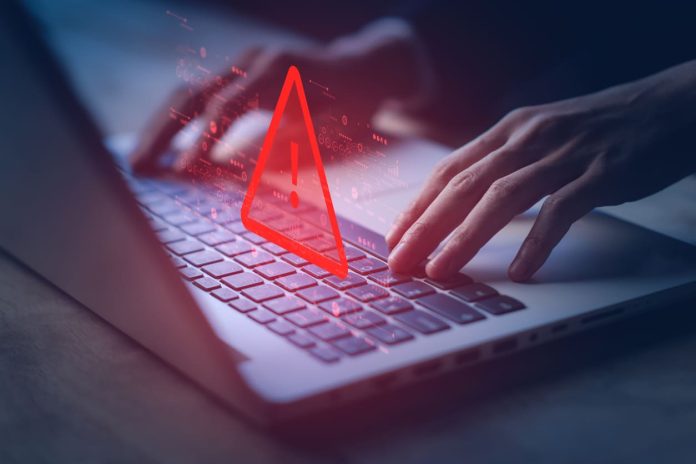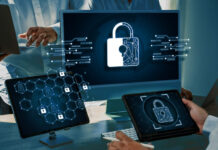Unprecedented opportunities for people and businesses have emerged with the emergence of digital transformation. With these opportunities, however, come challenges – chief among them being cybersecurity. Safeguarding digital assets has never been more vital. Every day, hackers employ increasingly sophisticated techniques to get into networks and steal data. Understanding the foundations of cybersecurity is essential. Here are the fundamental dos and don’ts of cybersecurity, with a spotlight on the importance of VPNs, especially considering the Mysterium VPN pricing advantage.
1. Do: Use Strong, Unique Passwords.
Why: A vast majority of cyber attacks succeed due to weak or easily guessable passwords. Passwords act as the first line of defence against unauthorised access.
How: Ensure your passwords are complex, using a combination of letters (both uppercase and lowercase), numbers, and symbols. Avoid using easily guessable information such as birthdays, names, or common phrases. It’s also advisable to update passwords regularly and use a unique one for each account.
Managing multiple unique passwords can be challenging, but password managers can help. These tools securely store your login credentials and generate strong passwords for you, making it easy to maintain good password hygiene without the hassle of remembering countless complex passwords.
2. Don’t: Click on Suspicious Links or Attachments.
Why: Phishing attacks, wherein hackers trick individuals into providing sensitive information, are on the rise. Attacks like this usually come in the form of deceptive emails with dangerous links or files. Hackers use a variety of tactics to make their phishing attempts look legitimate, such as spoofing email addresses to make them appear as if they’re coming from a trusted source or creating convincing fake websites that mimic well-known brands. When you click on these links or download the attachments, you may be unwittingly installing malware, spyware, or ransomware on your device, compromising your security and putting your personal information at risk.
How: Be sceptical of unsolicited emails, especially if they ask for personal or financial information. Hover over links to see the actual URL before clicking, and avoid downloading attachments unless you’re certain of their legitimacy. Look for red flags like poor grammar, urgent requests for personal information, or messages that create a sense of panic or urgency.
To verify the safety of a link, take a moment to preview the URL by hovering your cursor over it. If the destination seems questionable or differs from what you anticipated, it’s best to avoid clicking on it altogether. Likewise, exercise caution when receiving attachments, particularly from unfamiliar sources or those with unusual file types. If you have doubts about the integrity of an attachment, consider scanning it with antivirus software before accessing its contents to err on the side of caution.
3. Do: Keep Software Updated.
Why: Many cyberattacks exploit vulnerabilities in outdated software. Patches to fix these vulnerabilities are typically included in software updates, improving security.
How: Regularly check for and install software updates on all devices. Operating systems, programs, and even browsers fall within this category. Automatic update settings can be a boon in this regard.
If automatic updates aren’t an option, make a habit of regularly checking for and installing updates yourself. Set a reminder on your calendar or choose a specific day each week to devote to updating your software. Don’t ignore update notifications when they pop up on your screen – take a few minutes to install them right away, even if it means interrupting your workflow temporarily.
4. Don’t: Underestimate the Power of VPNs.
Why: VPNs, especially considering the affordability of Mysterium VPN pricing, offer a layer of encryption and privacy to your online activities.
How: By employing VPNs, your original IP address gets masked, making it challenging for cybercriminals to track your activities. Choosing a reliable VPN, like Mysterium, ensures you get value for your money while maximising your security.
5. Do: Educate Yourself and Others.
Why: Cyber threats evolve rapidly. Knowing the most recent hazards and safety precautions is essential.
How: Regularly attend cybersecurity seminars, workshops, or webinars. Subscribe to newsletters from trusted cybersecurity organisations. All employees should get cybersecurity training as a priority in organisations to ensure that everyone is prepared to identify and prevent possible attacks.
6. Don’t: Use Public Wi-Fi Without Caution.
Why: Public Wi-Fi networks, such as those in cafes or airports, are often unsecured, making them prime targets for hackers.
How: If you must use public Wi-Fi, avoid accessing sensitive accounts or conducting transactions. Your connection can be encrypted by using a Virtual Private Network (VPN), or dedicated proxies providing security from possible listeners.. Remember, with the added protection from proxies, you can further obfuscate your activities and origin, but never assume full anonymity or security on public networks.
7. Do: Backup Your Data Regularly.
Why: Even with the best cybersecurity practices, breaches can occur. In cases like ransomware attacks, having a backup can mean the difference between losing crucial data forever and merely experiencing a temporary setback.
How: Implement regular data backups, storing them both onsite (external hard drives, for instance) and offsite (cloud services). Ensure backups are encrypted to prevent unauthorised access.
8. Don’t: Assume You’re Not a Target.
Why: Many individuals and businesses believe they’re too small or insignificant to be targeted by cybercriminals. This is a myth. Everyone, regardless of size or industry, is a potential target.
How: Always be proactive in your cybersecurity measures. Regular audits, vulnerability analyses, and penetration tests are part of this.
9. Do: Implement Multi-Factor Authentication (MFA).
Why: Even if your password is compromised, MFA can stop unauthorised access.
How: Activate MFA on all accounts that offer it. This usually requires a second form of identification, such as a text message or an authentication app.
10. Don’t: Be Complacent.
Cybersecurity complacency is a quiet enemy.. It’s easy to adopt a ‘it won’t happen to me’ mindset, especially after implementing numerous protective measures. However, the digital landscape is perpetually shifting. Cybercriminals are tenacious and always come up with new ways to get around security measures. Relying only on prior security triumphs may result in outdated defences, putting systems at danger. In addition to jeopardising the integrity of a company’s data, this irresponsibility might affect the company’s reputation.. These factors highlight the necessity of continuing with a proactive attitude.. Regularly review and refresh security protocols, stay updated on emerging threats, and foster a culture of constant vigilance. In the ever-evolving world of cybersecurity, standing still is falling behind.


































